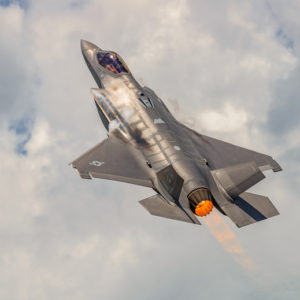A free, prosperous society is built upon three critical pillars: Trusted political institutions, robust economic institutions, and vibrant social and cultural institutions. These pillars rely upon one another – one weak pillar impacts the others and worsens society. And right now, America’s political institutions are extremely weak – caused in part by two divisive elections, a worldwide pandemic, and social unrest, but also the trillions of dollars and thousands of lives spent undermining liberty through a War on Terror that shifted our national security apparatus from protecting security to restricting it.
In a free society, the government has a responsibility to provide for a nation’s security and safety. Maintaining and improving trust among the public is critical to effectively carry out its duty. No one can deny government has rapidly expanded in the past 20 years and taken on more responsibilities than it should have. Being overstretched sacrifices effectiveness and core principles upon which critical matters are based. In the case of national security, the government has become an international instigator and a domestic assailant of personal rights because its scope of responsibility has dramatically expanded while accountability seems to have vanished.
Americans both left and right are weary of the War on Terror, which is longer than any war in American history. Combined war weariness with a growing sense of the threat posed by China, Russia, and Iran has people looking for confidence and trust to be placed in those who provide for domestic safety and security.
But the government can’t earn Americans’ trust while we fear it. And it certainly can’t earn trust when its competence is so easily questioned.
The War on Terror isn’t the only military operation that’s too big to fail. The F-35 weapons program gives us a microcosm into the war’s waste and inefficiency. Projected to cost taxpayers over $1 trillion dollars over its lifetime, the F-35 weapons program alone will cost half as much as the War on Terror and have the same lack of success.
Originally conceived to be an all-encompassing fighter jet for the entire armed services, the F-35 program is almost 30 years old and has flown only minimal combat missions. The jet is plagued with 800 new “unresolved software and hardware deficiencies” per a recent Pentagon report and expected testing and delivery dates continue to be pushed back. Astronomical costs are now impossible to ignore, with even Air Force chief of staff, Gen. Charles Brown Jr., admitting the F-35 will be the “Ferrari of the fleet,” only to be utilized on special occasions.
As new threats and potential enemies emerge, the F-35 is ill-suited to effectively serve on the front lines. In a recent war game, the F-35 was identified as a defensive aircraft attacking only short-range targets. If the American government is ever at war with Iran or China, the F-35 would need substantially more range to be an effective asset.
Navigating an environment of growing distrust in political institutions, a war-weary populace, and growing concern with new enemies abroad places the U.S. government in a delicate position. The defense and security of the nation are among its primary duties, but what citizens see isn’t encouraging.
Policymakers, military leaders, and elected officials should take two steps to earn back trust. The first is to simply be more competent. Stop wasting money on programs like the F-35, stop ordering extra equipment to give Members of Congress political tools at taxpayer expense, and stop turning Americans into suspects of a War on Terror which we didn’t start and of which we are exhausted.
The second is to refocus from a security state to securing domestic freedom. Reigning in the government to improve national defense is a priority. If stretched too thin, the state will not be able to provide security. Refocusing on better missions in a changing world is critical to regaining trust and properly serve the American people. Stop nation-building in societies that lack the institutions needed for liberal democracy, and develop the technology and weapons to remain the dominant world superpower.
In short, the military must be smarter and more ethical if we want to begin turning the ship of government distrust. It must restore its duty to protect and secure liberty – starting with the tactics of competence, and more thoroughly with a strategy of regaining a proper size and mission scope.


